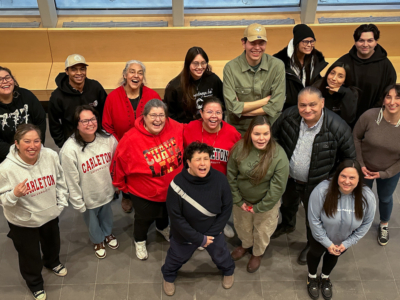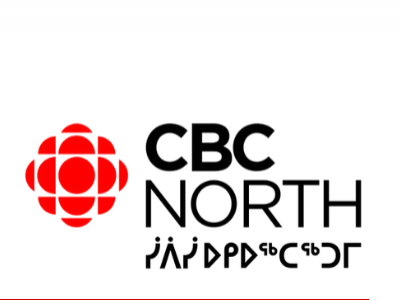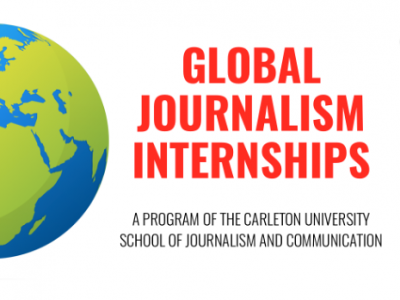The 2018 Diane King Stuemer Award has been awarded to MJ student Kassina Ryder, who will use the funds to chronicle a massive standardization program aimed at preserving Inuktut, the language of Canada’s Inuit.
At present, with the territory of Nunavut struggling to educate and employ Inuktut-speaking teachers, the language is dying. If nothing is done, it is estimated that only four percent of Inuit will be fluent speakers of their native language by 2050. 
The Atausiq Inuktut Titirausiq task force is working toward a unified language system created by Inuit, for Inuit – an attempt to preserve Inuktut by standardizing dialects and replacing the syllabic writing system with Roman orthography. The initiative is controversial: standardization will mean the loss of regional dialects, and some view the elimination of syllabics as near-sacrilegious, since the first Inuktut translations of the Bible were written in syllabics.
However, the example of Greenland offers a model of success that Canada’s Inuit may adopt and adapt. In the 1970s, the government of Greenland launched a standardization program that created a unified writing system for Kalaallisut, the West Greenlandic dialect of Inuktut. Today, it is the official language of the country with more than 90 per cent of Greenland’s 57,000 people speaking, reading and writing Kalaallisut.
Researching this story will require Kassina to travel to Greenland, and to Nunavut – travel that will be supported by the Stuemer Award, which provides up to $10,000 to support graduate student research in Journalism.
Kassina Ryder is a journalist with 15 years experience in covering Canada’s North for the Northern News Service Ltd. and other outlets. She can read and write Inuktut syllabics and continues to work on speaking the language.
The award was established in 2014 by the King family in memory of Diane King Stuemer, a graduate of the Bachelor of Journalism program.
*****
 The winner of the 2018 Bill McWhinney Award is MJ student Stephen Cook, who will travel to Sri Lanka to investigate an instance of “reconciliation gone wrong.”
The winner of the 2018 Bill McWhinney Award is MJ student Stephen Cook, who will travel to Sri Lanka to investigate an instance of “reconciliation gone wrong.”
The Mullaitivu district of northeastern Sri Lanka is today a tourist destination of gorgeous beaches and luxurious spas. But almost 10 years ago, it was where the Sri Lankan army surrounded the remnants of the Liberation Tigers of Tamil Eelam, bringing an end to a 25-year-long civil war in a final, bloody slaughter. Since the end of the war in 2009, Sri Lanka has been criticized by the UN and other international bodies for not implementing reconciliatory measures with the Tamil population. Many are still missing, their fates unknown; LTTE fighters yet languish in central government prisons, their legal rights stripped by the sweeping power of antiterrorism laws; and, perhaps most crucially, war crimes have not been addressed by any human rights tribunal. The only boost the war-ravaged north has received is from tourism initiatives and private investment, developments that have done little to aid the impoverished in the Tamil city of Jaffna or surrounding areas. At the intersection of reconciliation, tourism, and foreign investment, Stephen will pursue a story of development, exploitation and the victims of war further victimized by inaction.
Founded in 2002 in the memory of Bill McWhinney, the first full-time director of CUSO, the award will provide more than $5,000 to support the costs of Stephen’s research.
*****
The winner of the inaugural Peter Stursberg Award is MJ student Ash Abraham, who will travel to South Korea to document the stories of North Korean women refugees in the South, many of whom experience social isolation and discrimination. Their upbringing in the closed society of North Korea has ill-equipped them to adjust to the pace and competitiveness of life in the capitalist South. Their accents mark them as outsiders. Many were traumatized by their experience in escaping the North, being sold as brides to men in China or having been arrested in Thailand. 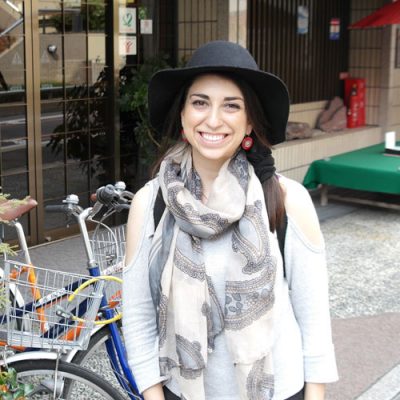
If North Koreans are finding it challenging to integrate into South Korea today, Ash asks, then what will happen when – and if – Korea becomes unified? Understanding social relationships is vital to understanding how the country will handle the disparities between the two nations when they reunite.
Currently interning with the United Nations High Commission for Refugees in Ottawa, Ash Abraham lived in South Korea for almost four years, contributing to Open Radio for North Korea, which broadcast news from Seoul across the Demilitarized Zone and into the North. She also created an English as a Second Language mentorship program which linked English-speaking South Koreans with refugees from the North.
Endowed in 2016 by Richard Stursberg and Judith Lawrie in memory of Peter Stursberg, who covered the front lines of the Second World War for the CBC, the award provides more than $5,000 to support research in Journalism on a subject related to human conflict, reconciliation or reconstruction.
*****
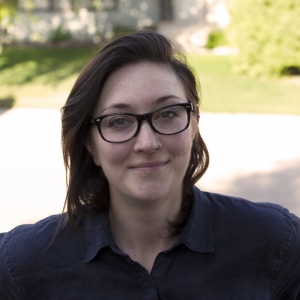 The winner of the G. Stuart Adam Award for 2018 is Lisa Johnson, who will use the $1,000 to chronicle the hardship visited on small communities and Indigenous populations by the cancellation of Saskatchewan Transportation Company’s bus service to rural towns. The award is named after a former director of the School of Journalism and Communication and former Provost of the university.
The winner of the G. Stuart Adam Award for 2018 is Lisa Johnson, who will use the $1,000 to chronicle the hardship visited on small communities and Indigenous populations by the cancellation of Saskatchewan Transportation Company’s bus service to rural towns. The award is named after a former director of the School of Journalism and Communication and former Provost of the university.
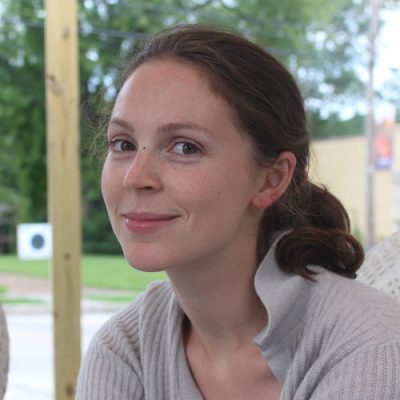
The winner of the Political Reporting Award for 2018 is Caroline Mercer, who will use the $2,000 to document the methodological exclusion of participants, most often minorities, from research studies in genomics. She will travel to northern British Columbia to document UBC’s Silent Genomics project, which aims to establish an Indigenous genomic background variant library.
 The winner of the Harold A. Morrison Award for 2018 is Adam Van der Zwan, who will use the $1,000 to document the efforts of British Columbia’s tourism industry to recover from the effects of last year’s wildfires, and to examine what measures are being taken to help tourism stakeholders prepare for future extreme wildfires. The award was endowed in 1997 in the memory of one of the first graduates of the Carleton University Journalism program.
The winner of the Harold A. Morrison Award for 2018 is Adam Van der Zwan, who will use the $1,000 to document the efforts of British Columbia’s tourism industry to recover from the effects of last year’s wildfires, and to examine what measures are being taken to help tourism stakeholders prepare for future extreme wildfires. The award was endowed in 1997 in the memory of one of the first graduates of the Carleton University Journalism program.
Sunday, March 18, 2018 in Journalism News, News
Share: Twitter, Facebook
